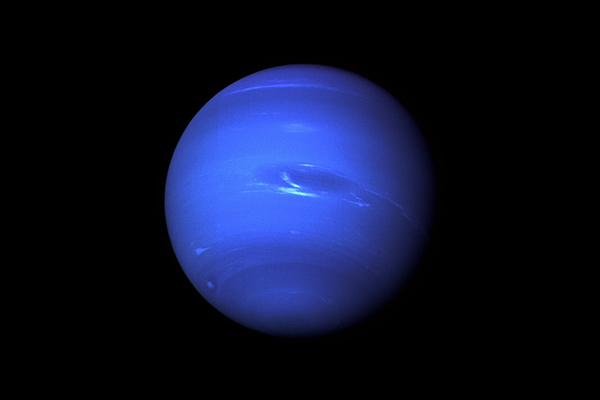- Author Andelka Subasic

Neptune was discovered in 1846. It is larger than Uranus and it takes 146 years to orbit the Sun. It has two satellites: Triton, which orbits it in 6 days, so it is considered the fastest satellite of the solar system; Nereid is its second satellite. Neptune, known to everyone as the God of the sea and earthquakes, was called Neptunus in Roman mythology, while in Greek mythology he was called Poseidon son of Kronos and Rhea. In Roman mythology, he was known as the son of Saturn and his wife-sister Ops. Neptune was the ruler of all the seas. It’s common symbol is the trident, which it would use to hit the Earth when it felt offended and angry, thereby causing floods, shipwrecks, earthquakes and drownings.
Neptune gives you the feeling that your soul longs to rise above the material and reality. This is the planet of the illusionist, mystical, immaterial, merciful and sublime. It is careless and disorganized at the same time. It stimulates our charm, dreams, vitality, inspiration and genius, and draws our attention to things beyond reality.
Neptune gives us a love that is not visible or personally expressed, but which grows out of love for human, from understanding and from compassion. We identify with altruism, idealism and modesty. The negative sides of it’s influence are confusion, misunderstandings, lies and betrayals, psychological problems, escape from reality, alcoholism and drug addiction.
It influences a whole generation of people by giving them a common lifestyle and approach to the world, common hopes and illusions.
Without Neptune, life would be boring and colorless. Neptune lifts the soul high above earthly reality and gives us hope even when everything else is lost.
During its influence, we must beware of drinks and vices, which can then cause unknown and somewhat strange disturbances, hypersensitivity as a cause of poisoning.
Neptune softens you a bit, makes you sophisticated, softens your sharpness, changes you so that you don't even feel it (like an anesthetic).
Its influence does not sit well with rigid realists because they feel strange, bewildered and confused. At the time of its influence, many people start reaching for something that will help them escape from the reality they don't like: alcohol, drugs, medication, antidepressants. Physical energy is occasionally lacking. It is better to "escape" from reality through poetry, music, spirituality, religion, humanitarian work, travel to distant exotic countries and regions that inspire you, to occasional isolation. Neptune sometimes inspires you and sometimes disillusiones you (disappoints, shatters your illusions).
Don't be afraid of Neptune's influence. Everything in life does not have to be perfectly clear or logical or provable. Think of it as fog on the road you're moving or traveling on - you can't see well, so you have to slow down, concentrate on a road infront your car, turn on the light and trust yourself. That's how you'll reach your destination, and when the fog clears, you'll see clearly where you've been traveling. You might end up being happy that you didn't see the surrounding, which isn't so beautiful. Even if you went astray along the way, there was a higher reason for that. You need to follow your path.
Some people don't even feel Neptune’s influence, at least not on a conscious level. Materialists are surprised when they cry while watching a movie. Some suddenly become interested in something esoteric: bioenergy, astrology, art, photography, etc.
Negative influences mainly bring disappointments, deceptions and the tendency to be "blind in the eyes" or that you "lead someone thirsty across the water".

